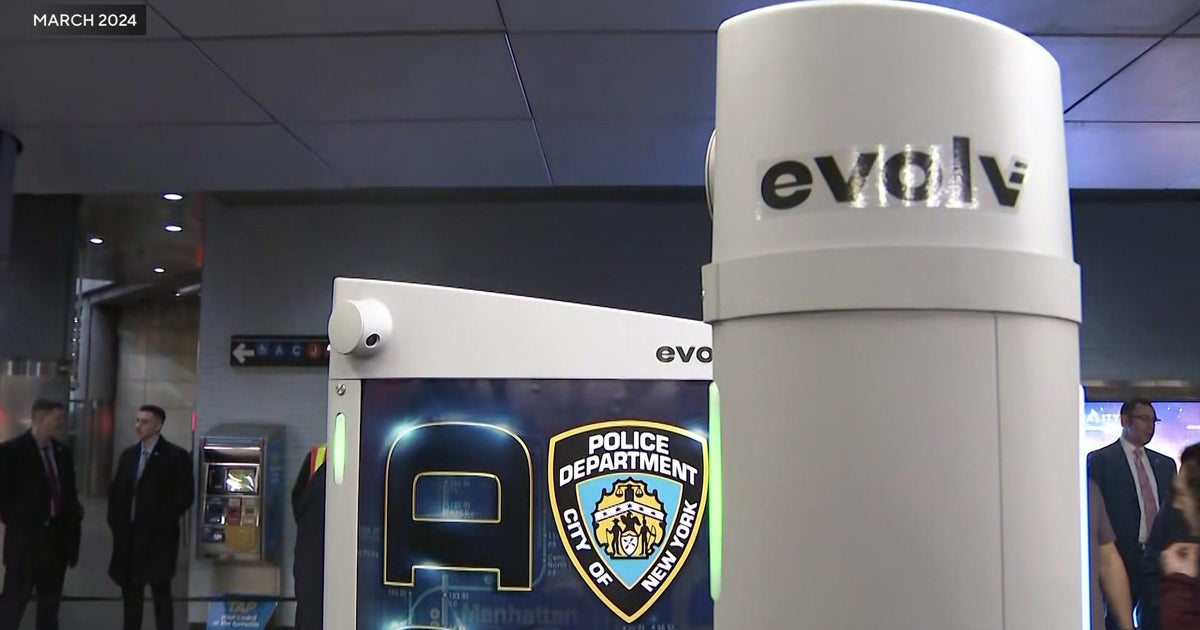MTA holds 1st public hearing on Manhattan congestion pricing
NEW YORK -- Commuters had a lot to say Thursday at the MTA's first of four public hearings on Manhattan congestion pricing, which the MTA appears ready to implement in the spring.
MTA CEO Janno Lieber said toll readers are almost fully installed and are set to "go live" in June.
"We're almost there on having all the congestion pricing infrastructure in place," said Lieber. "I think there are five locations where there's still work to be done, out of 110 roughly."
Watch Lisa Rozner's report
New York City Comptroller Brad Lander, environmental advocates and CUNY students are among those calling on the MTA to adopt the plan quickly.
Participants can join the hearings in-person or virtually. Registration closes 30 minutes after the hearing starts.
New Yorkers sound off at public hearing
Commuters finally had their chance to weigh in on the controversial plan, and many did not hold back.
"No congestion tax," one person said.
"This is a crime against a New Yorker. You might not like what I'm saying, but it's a fact," another person said.
"Have you not considered the residents of the CBD that are forced to drive out of the city to work?" another person said.
The public pointed out problems they say would impact New Yorkers, while others detailed why they support the plan.
"I am a radiation doctor. My patients get daily radiation for four to six weeks and are often too sick to use public transportation," Fumiko Chino said. "This congestion fee is essentially a cancer tax."
"In New York, congestion pricing is predicted to result in a 15 percent reduction in crashes, which would be 71 fewer fatalities and 17,000 fewer injuries a year," another person said.
After the four public hearings, the MTA Board is expected to hold a final vote on the congestion pricing program in the spring.
The next public hearing is March 1 at 10 a.m. The final two hearings are March 4 at 10 a.m. and 6 p.m.
How will congestion pricing work in Manhattan?
The toll readers will scan license plates and charge drivers $15 for entering Manhattan at 61st Street and below. Trucks could be charged $24 to $36 during peak weekday travel hours: 5 a.m. to 9 p.m.
"I can understand how the MTA is cash-strapped, but I just think it's a lot to ask New Yorkers to pay," one person said.
"I'm not coming into the city, because first thing I gotta pay to get into the city, which is almost $15. If I'm coming this way, it's another $15. It doesn't work for me," another person said.
"I mean, listen, there's too many drivers, it's a lot of traffic. I think it's a good thing," another person said. "For a system to work better, it's worth it."
Transit officials said the tolling program is crucial in order to fund transit improvements and reduce traffic. However, there are still several lawsuits standing in the way.
"The direction of the legal process is very good," said Lieber, hopeful they will be resolved.
According to officials, improvements at risk of further delay include:
- 250 new electric buses
- $1 billion for the next generation of subway cars
- New cars for the Long Island Rail Road and Metro-North Railroad
- Public announcement system upgrades at 76 stations
One of the biggest unanswered questions is who will be exempt from paying the toll?
So far, taxis and rideshares will be exempt. But taxi passengers will have to pay a $1.25 surcharge, while rideshares will pay a $2.50 surcharge.
"This is hard for me, for us," a taxi driver told CBS New York.




